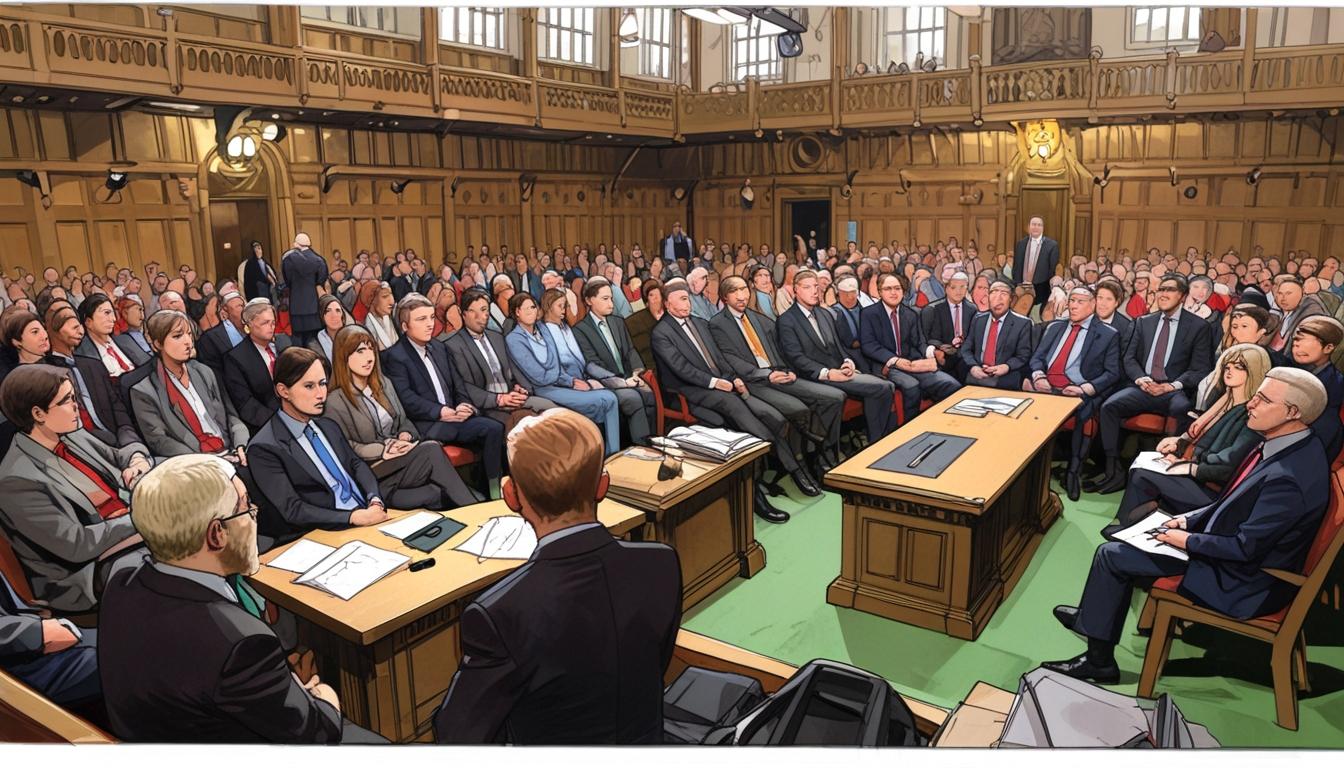Labour MPs erupted in anger over proposed benefits cuts in the House of Commons, with serious concerns mounting about the adverse impacts these changes will have on already vulnerable communities. Work and Pensions Secretary Liz Kendall faced significant backlash not just from opposition parties, but alarmingly from within her own ranks, as she laid out plans to tighten eligibility for disability-related benefits. The cuts are purportedly aimed at saving £7 billion by forcing those capable of working into employment—a move many Labour MPs deem “unfair” and damaging to individuals already struggling to make ends meet.
The scale of dissent is indicative of a party in turmoil, with over 80 backbenchers co-signing a private letter to No. 10 expressing deep unease about the government’s intentions. They are particularly concerned that the full implications of these proposed cuts will only be revealed after a key vote scheduled for June. This raises serious questions about whether party leadership under Keir Starmer is prioritizing fiscal austerity over the well-being of the most vulnerable, a significant deviation from the traditional Labour ethos.
Voices from various sectors of the party have added to the discontent. Bradford East MP Imran Hussain raised the plight of the 41,000 disabled individuals in his constituency who depend on personal independence payments (PIP) for essential support. He warned that the proposed cuts—especially the introduction of a stringent “four-point rule”—threaten to severely impact lives. “I cannot support any cuts that worsen inequality in places like Bradford," he stated, advocating instead for increased taxation of the wealthiest to foster a more equitable system.
Kendall attempted to quell the backlash by initiating a review of PIP, insisting on its critical role as a lifeline for disabled individuals. “I want to be clear to the House – for people who can never work, we want to protect them,” she asserted. However, her attempts to soothe concerns fell flat. Polly Billington, another Labour MP, posed challenging questions about the government’s controversial plans to deny young people under 22 access to the health element of Universal Credit. “How does denying access… help these young people into work?” Billington questioned, shining a light on the flawed rationale behind these reforms.
The broader context of the proposed welfare cuts displays a government struggling to manage rising costs associated with the benefits system, leading to a concerted effort to address what Kendall describes as a "fundamentally broken" structure. While the government claims that reform is crucial for the sustainability of the welfare system, opposition voices and various advocacy groups argue that these cuts will exacerbate hardships for already vulnerable populations.
The potential ramifications extend beyond mere political fallout. Critics from both within and outside Labour—including influential figures like Diane Abbott—assert that these proposed measures betray Labour's foundational values of support for the disadvantaged. “Cutting support for disabled individuals undermines our commitment to equality,” Abbott noted, echoing a widespread fear that the party's actions may alienate its core support base.
As discontent brews within Labour, the government braces for a rocky road ahead. Reports suggest that the Cabinet remains united in endorsing the cuts, focusing primarily on the goal of countering the soaring benefits bill. However, the ongoing rebellion among Labour MPs indicates a deeper ideological chasm within the party regarding the balance between fiscal responsibility and ethical obligations to society's most vulnerable.
While discussions are anticipated to continue leading up to the critical vote, the dissenting voices reverberate throughout the party, calling for a closer examination of the ideological underpinnings of Labour's policies. The decisions made in the coming months will not just shape the welfare landscape; they will also profoundly affect the party's identity and its historical commitment to advocacy for the disadvantaged.
Source: Noah Wire Services
